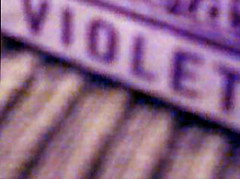Lawrence, Jerome and Robert E. Lee. Inherit the Wind. New York; Bantam Books, 1960?
Inherit the Wind is a fictionalized version of the Scopes Monkey Trial. The names have been changed to protect the historically inaccurate, but there's no attempt the hide the fact that they're rehashing the trial. Clarence Darrow becomes Mr. Drummond and William Jennings Bryant becomes Matthew Harrison Brady; it doesn't take much sleuthing to find the similaritites. What is most interesting, however, is the fact that the play, written in 1955 about a trial that took place in 1925, says that its time is "Summer. Not too long ago." and that it takes place in "A small town." I'm not the first one to think that this great American Courtroom Drama was written with the McCarthy hearings in mind, nor that it's become strangely relevant once again as the Kansas City School Board battles over Intellligent Design. While it is supposedly creationism against evolution on the witness stand, in reality it is freedom of speech. But these are not the same issue. Inherit the Wind is about the right to disbelieve, to question, to think. It's not really about evolution, though of course that is in there as well. It's about learning. And in a way it says that it's better to be a believer than a cynic; Mr. Hornbeck the athiest newspaperman doesn't come off very well in the play. It's a play about great men battling over great ideas, in the fine tradition of Roman oratory, though of course it it Rachel whose soul is at stake and who, in the end, learns to question authority and think for herself.
But what does the title mean: "He that troubleth his own house Shall inherit the wind?" Both of these men are all wind, really, and in a way Matthew Harrison Brady is the tragic hero of the piece - we can tell because he dies at the end. The quote seems to say 'don't rock the boat' which is not exactly the point of the play.
Zin Galactic cut
-
Zin Galactic cut
Sometimes there's something I like but I have to cut it because of how the
play functions better without it. I just cut this from Zin Gal...
3 days ago

0 comments:
Post a Comment